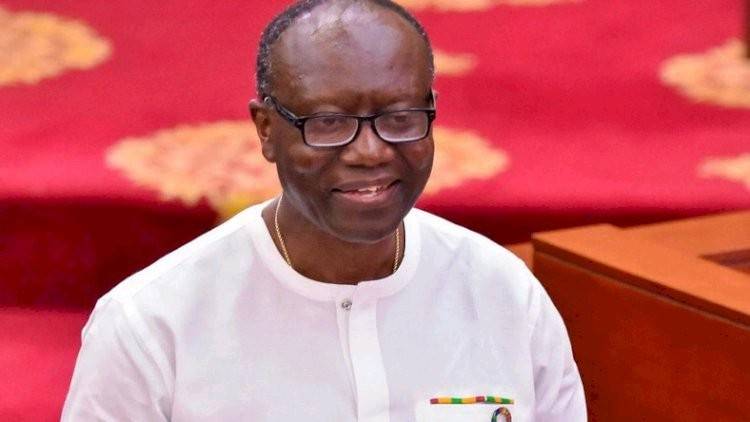The government intends to establish Export Trade Houses to boost made in Ghana product brands, according to Finance Minister Ken Ofori-Atta.
Prior to the midyear budget review presentation, which is due for today, July 31, economist Dr. Saeed Iddrisu has urged the government to resume road toll collecting in the nation. Finance Minister Ken Ofori-Atta.
He believed that it was a mistake to cancel toll collecting in the first place. He claimed that by making the change, it would enable those who had been fired as a result of the toll collection's discontinuation find new employment.
"I'm looking forward to certain modifications being made as well. I'm much more particular about the e-levy, though, as it resembles a nuisance tax in many ways. The required revenue that the government anticipated receiving is not being received.
'Government's prediction before the e-levy's passage was to be able to get approximately GHC4.5 billion annually, and so far, estimate is that government is only getting about GHC600 million annually - so government is not making that much. Instead of that, I would anticipate that the government would reinstate the tolls on the roads since it would give those who had been laid off a way to find work.
Dr. Iddrisu reiterated that the mid-year budget review also offers a good opportunity for the government to reevaluate its position regarding the imposition of the e-levy. According to him, the e-levy "displaced a lot of the momo vendors who were also out of jobs".
So, cancelling will restore the momo system to its original context. Additionally, I would like the government to direct the necessary funds; whatever taxes they collect, they should be able to direct them towards current vital tasks.
Dr. Iddrisu added that the government must make finishing important projects in the nation a top priority. He used the Agenda 111 project to illustrate how this is a priority that the government ought to actively concentrate on.
He also said that the government needed to pay attention to the pleas from numerous stakeholders and professionals to review the COVID levy. He emphasised that, given that the World Bank and other organisations have declared COVID to be obsolete, eliminating the fee is the appropriate course of action at this time.
"With just under two years before an election year, the likelihood of a change in administration is fairly high, therefore you don't want to leave many unfinished projects in the hands of the next administration. Therefore, the government should put its attention now on crucial initiatives and disregard those that wouldn't significantly advance the interests of the nation.
Dr. Theo Acheampong, an economist and expert in political risk, acknowledged that while Ghana has achieved some headway this year in terms of the domestic debt exchange and other related issues, the country is still far from being out of the woods. He emphasised that there are still a number of serious economic obstacles that the government needs to address.
"As we approach the midyear review today, I'm particularly on the lookout for four areas where we ought to have some definitive responses. The first is that we are aware of a $10.5 billion funding gap that needs to be filled. We need to know what the government is doing because we need to raise around $2.5 billion this year alone to address the deficit. Where are we in the discussions and talks over the treatment of our external debt, and what should we anticipate from our creditors?
Dr. Acheampong disclosed, among other things, that he anticipates the finance minister to discuss the ongoing economic changes. He pointed out that the finance minister needs to go into more detail on the revenue, expenditure, and tax-related areas where the nation has achieved strides.
"Especially on expenditure, the cutbacks that were sort of promised, since you have to complete a two-thirds rationalisation of expenditure reduction by the end of the year under the IMF programme. Halfway through the year, we should actually see some statistics on where we stand. Thirdly, what is happening with the Bank of Ghana and those reforms in the larger monetary sector? It would be helpful to learn more about that.
Dr. Acheampong also emphasised the importance of being aware of the status of the benchmarks that the government is required to meet in order to fulfil its commitment to the IMF plan. He said that even though the board won't meet until November, by the end of June this year, the government need to have complied with certain standards and requirements.
"The new energy sector recovery strategy is one of them. Once more, I believe it would be beneficial to learn more about those issues from the government.




No comments yet
Be the first to share your thoughts!